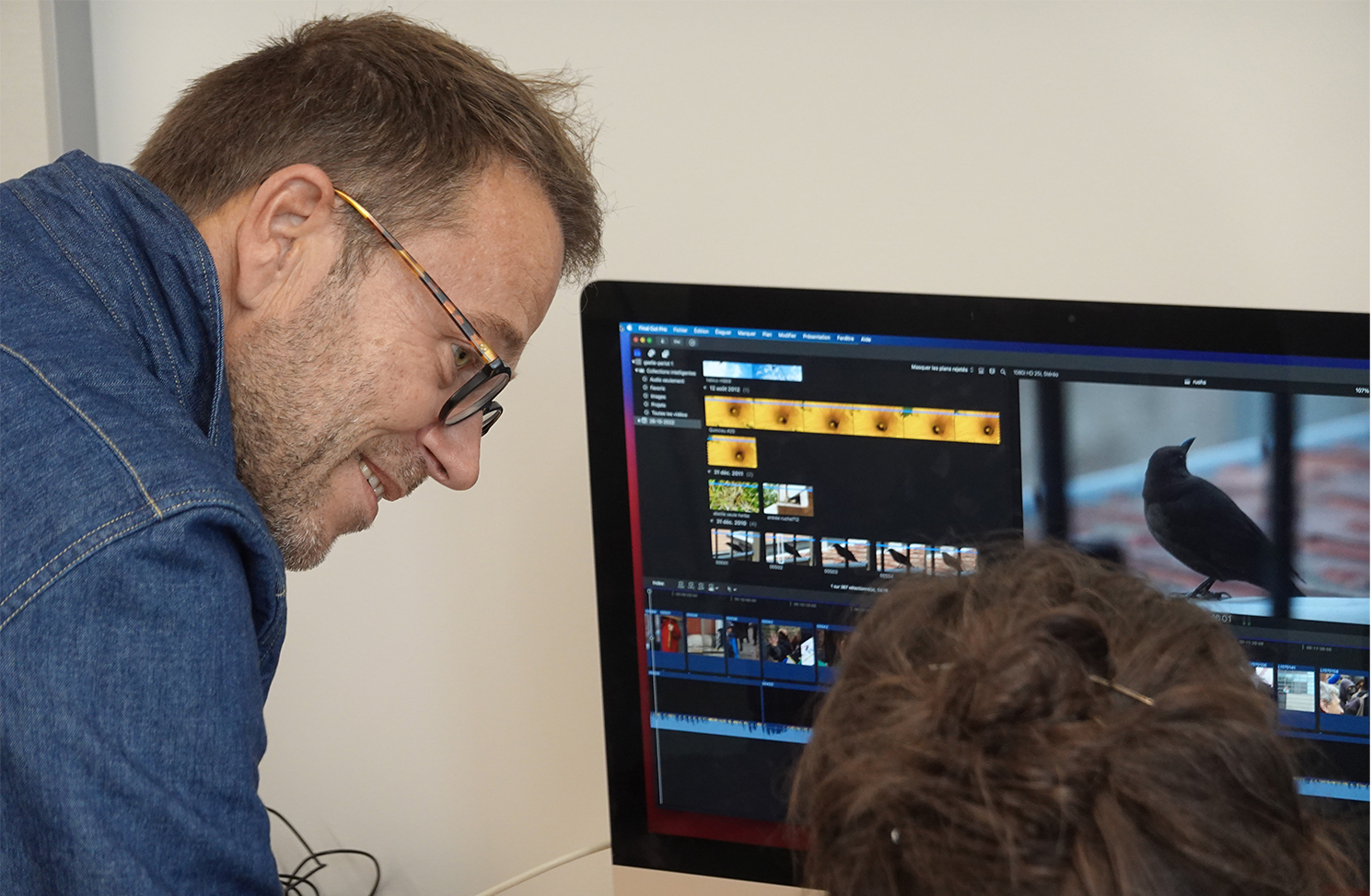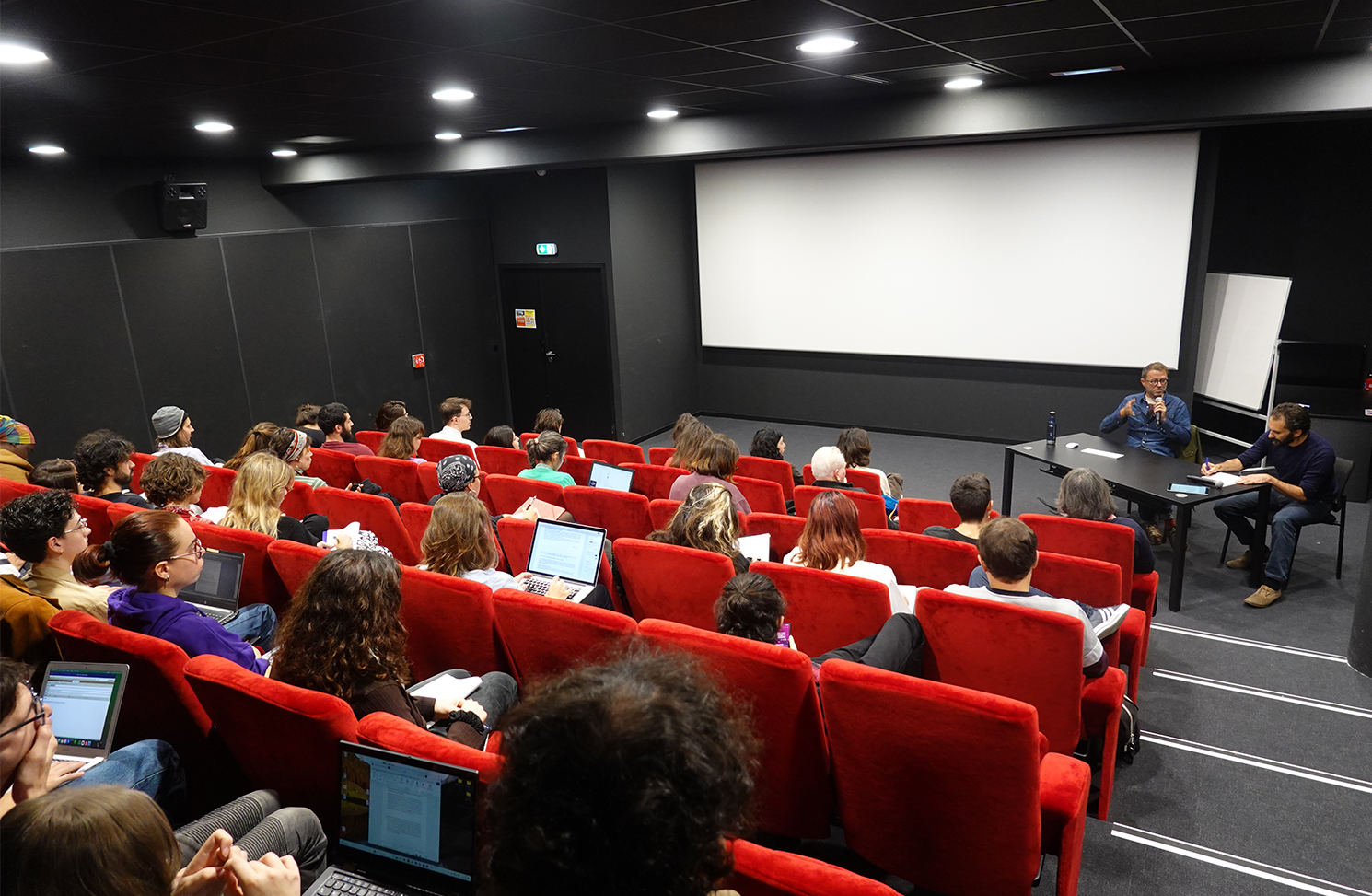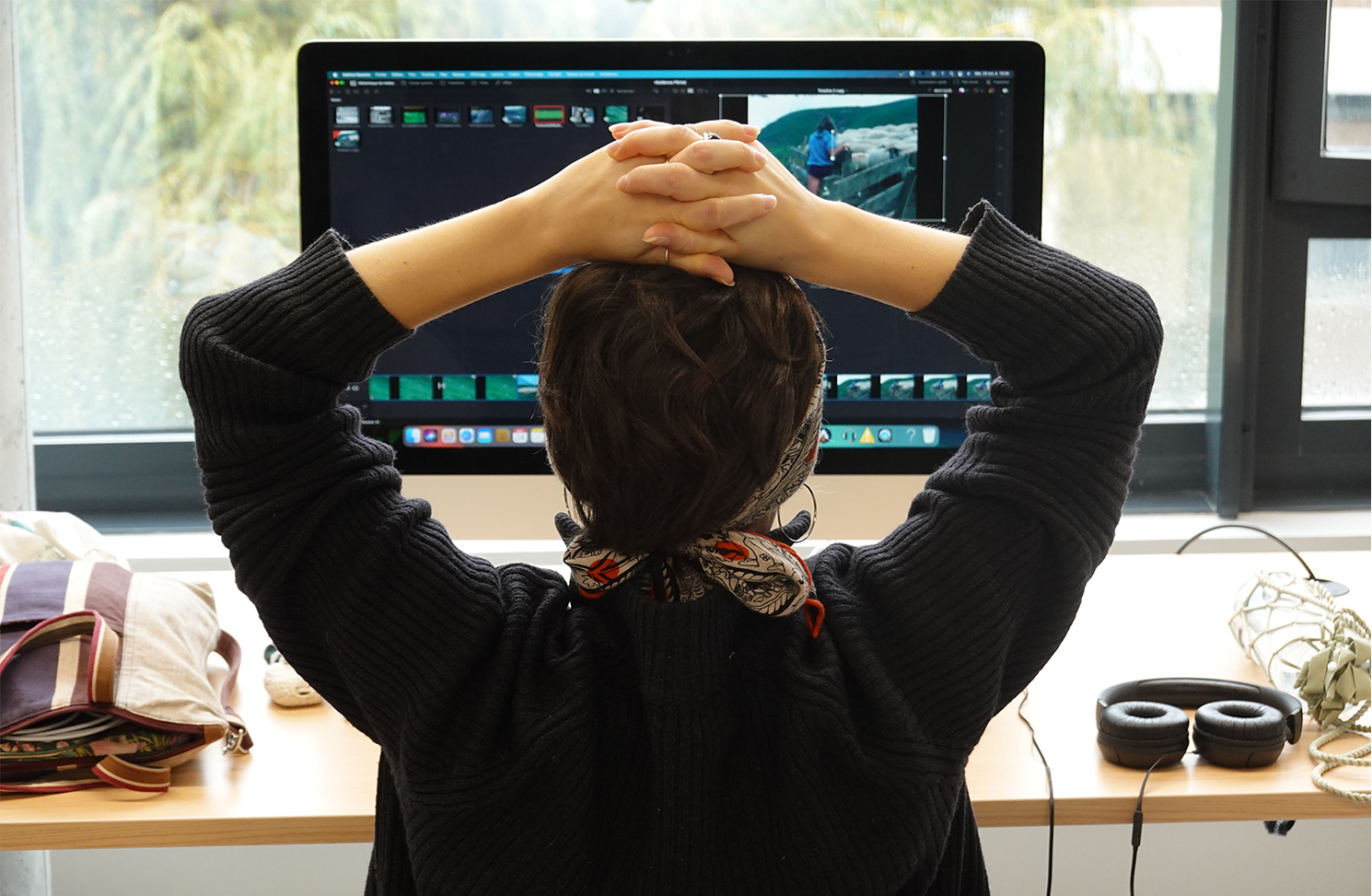Residency week with students in the Master 2 artistic creation program
For me, making a film is above all a work of thought. I
could say that I don't start working on what will become a film until I've discovered a subject
after discovering a subject (a story, an event, an image...) that I don't really understand.
I don't really understand, that escapes me, that seems to be hiding something and that,
that stops me in my tracks and holds me back.
It's as if I had a premonition that, by searching through the shadows of this subject, I might be able to discover what has troubled me and what I feel is essential. If each of my films seems to address a constructed discourse to viewers, if it seems to assert a position in the face of the events it deals with, each of them is nonetheless a modest attempt to clarify the doubts that its subject arouses in me. To put it another way, for me, a film is first and foremost the place where a question is developed, not the place where a discourse or certainty is enunciated. And for this, I use two means.
The first is research. For each film, I research as extensively as possible. I methodically read and watch everything available on the subject at hand. In a way, I undertake the same work as when preparing a dissertation, except that I never get to the writing stage. Even if we'll never be able to fully define and explain everything that might trouble or move us about a given subject, it's vital to be as precise as possible in order to understand our subject as much as possible, to avoid making factual errors, to learn to spot what comes under cultural or even ideological bias, and to avoid any form of naivety. When it comes to questioning pre-existing images, such research not only enables us to better understand these images (by learning where they come from, who made them, why, how they were distributed, etc.) but is also necessary to identify other images on the same subject. Paradoxically, even if we're very methodical, a significant proportion of the texts we'll read and images we'll look at don't really correspond, if at all, to our subject. This may seem like a waste of time, but getting lost allows us to find elements that are relevant to what we're concerned about, without being clearly linked to it. These elements, which often don't find their way into the final work, are for me essential to the development of my reflections. It's as if I had to go through rigorous work just as much as through escapes, poetic and sensitive gaps; as if I sometimes had to lose myself in order to come back to the object of my research more seasoned, more alert.
The second means at my disposal is the montage of visual elements found during my research. No matter how well one knows, or thinks one knows, one's own images or the archive images one has selected, these images change their nature once mounted with other images. It's as if confronting these images with one another opens up a new kind of understanding and apprehension. Of course, I'm not talking here about classic montage, in which images (whether filmed or archival) serve only to illustrate a pre-established point often made in voice-over, but about a cinematographic montage that has faith in the technical and poetic tools of cinema. It's not so easy to let go of the knowledge, preconceptions and feelings we've built up about the images we're going to edit, but it's necessary to get a better glimpse of what's problematic about these images, what they hide, what they don't yet tell us. Editing is therefore the place for experimentation, with its share of more or less happy failures, but also the place for the development of a vision and a way of thinking that can only come about through practice. It's thanks to editing, and through editing, that I'm perhaps able to make the questions that made me stop and think about a subject, and that I haven't been able to express until now, readable in my own eyes.
Each and every one of you is working on a film or a dissertation for which you have already decided on the subject and for which you have already had to begin research work. Irrespective of your final object, film or dissertation, and despite the greater or lesser precision of the projects you've turned in, I'm guessing that not everything is yet clear to you either in your future work or in what made you decide to work on this or that subject.
In preparation for this workshop, I'd like you to bring along elements gleaned from your research (extracts from texts, films, interviews; photographs; music, sound recordings, etc.), various materials that touch you, move you, question you without necessarily being linked to your subject, but that you've found while working on it. For example, if one of you is working on a dissertation on Tarkovsky, you can obviously bring elements that are at the heart of your subject (extracts from the filmmaker's films, one of his texts, a snippet of an interview, etc.), but you should also bring in elements that you found during your research and that seem to echo the subject, that seem to "resonate / reason" with it, without being directly linked to it. For those of you who film, you can of course bring along images, rushes and sounds taken during your location scouting, but again, it won't be a question of using only these images and sounds. You could bring other images filmed by you but which no longer really correspond to your current project, extracts from films which inspire you, extracts from interviews or texts by intellectuals or artists which help you to understand your own work, and so on.
You don't need to undertake any specific research for the workshop. It's simply a matter of bringing together the audiovisual elements you've already collected around your projects, or that you'll be gleaning by the end of October. Don't try to be too logical with these elements. It doesn't have to be coherent and organized. On the contrary, it's more like a jumble of disparate elements that don't necessarily go together, but which you've chosen each time because they "speak" to you, question you, touch you without you always knowing quite why. We'll use the time of the workshop to work on this material through editing, without looking for any precise result other than to enable you to better understand your own material and your project, or even to make a small object betraying the color, sensitivity and tonality of your film or memoir to come.
Alongside this editing work, which will take up most of the workshop time, we'll study some of my films together, allowing me to explain in concrete terms how I made these films from a chance encounter with a specific subject, and what more or less tortuous paths I took to end up with these films.
Jean-Gabriel Périot




